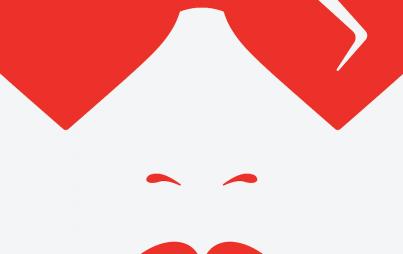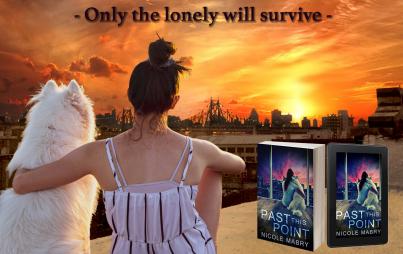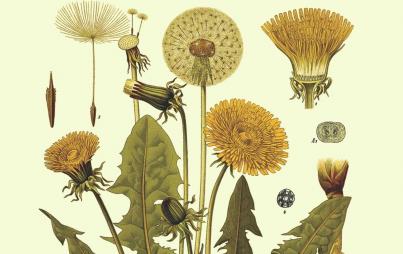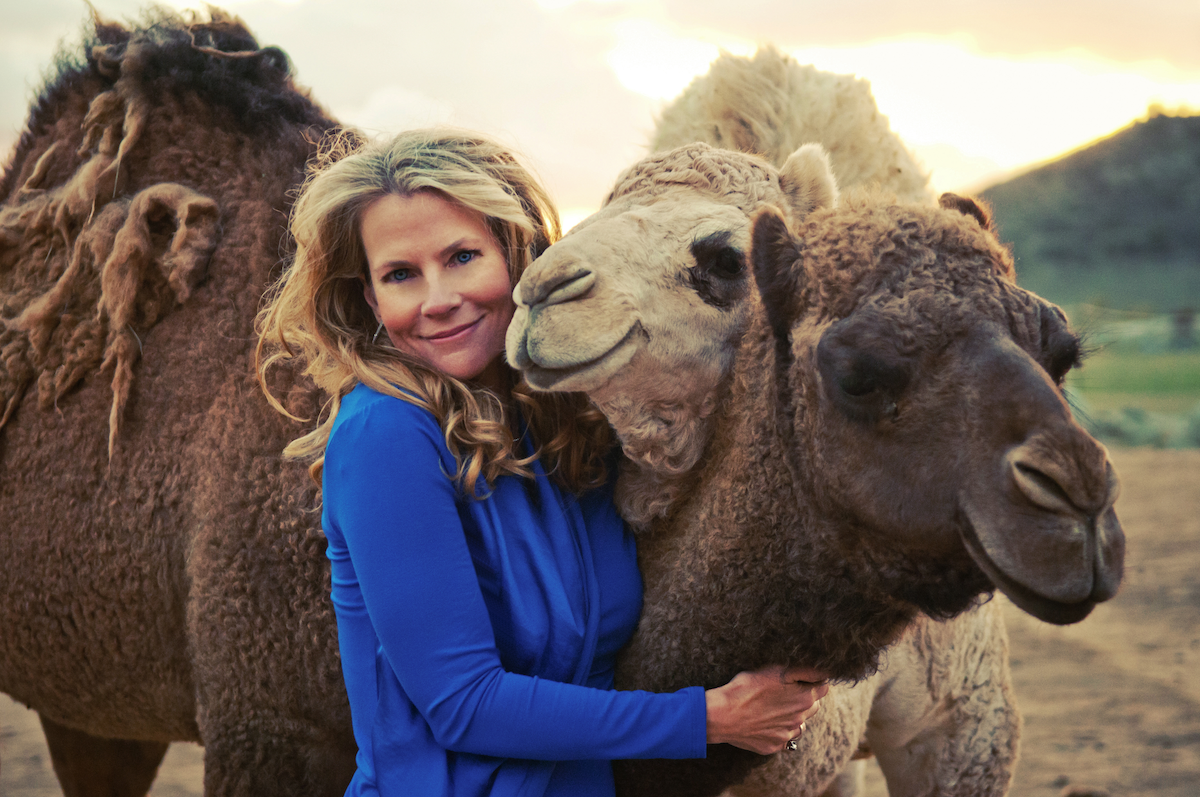
Christina Adams (courtesy of the author)
I’m so happy to share Camel Crazy: A Quest for Miracles in the Mysterious World of Camels with Ravishly readers! This book is about not letting challenges prevent you from changing the world. I was a newly single mother of a child with autism, and pretty scared about our future. But I met a camel and had the idea that its milk would help my son’s autism symptoms. I ‘smuggled’ in some frozen bottles of camel milk from Bedouins in the Middle East, and my son got better overnight.
I made friends with camel whisperers, nomadic people, and Amish farmers, became a camel milk expert, and set off to explore the world, nearly dying in India and learning the secrets of the world’s great camel cultures in America and Arabia. I’ve eaten unusual and delicious food, worn beautiful clothing, been moved to tears by nomads’ struggles, and experienced the kindness of strangers. I didn't grow up around camels or people of other cultures, and this was all new to me. But the world rose up to meet me in my quest. If you’re not a scientist, but you have a great idea, go for it! Share your goals with others, get way outside your comfort zone, and amazing things can happen.
Year after year, I’ve been erased. I have no name. I’m just Mom.
People I don't know and didn't birth or adopt have called me Mom almost every day for 20 years. I see the same practice being carried out year after year, place after place, one mom at a time. And I’m sick of it.
When I carried my newborn son into my first obstetrician’s visit, the office staff cooed over us. “Good job, Mom!” they said brightly.
At the time, it felt welcoming and sweet. At his first preschool, I and other mothers were called Mom, so I thought this was how it worked. Sure, it felt kind of pompous and distancing, but it was a ‘great school.’ But once it became clear that my two-year-old son didn't play by their rules, the director called me into her office, sat me down like a toddler, told me he was autistic, and kicked us out. Notably, this was the only time she used my name.
While his next preschool was fantastic, they too called me Mom. And then the therapists, medical professionals, and school staffers started with the “Sign here, Mom” and “Way to go, Mom” and the endless “Good job, Mom,” and we were off and running.
My name, which I’d heard like a normal person in my prior childfree life, suddenly disappeared. Go to any child service provider in Southern California, and nine times out of ten, you’re called Mom.
Who calls you Mom when they’re not your child or family member? Just about everyone who helps you be one.
The parenting infrastructure (especially for a special needs child) comes with doctors, teachers, camp directors, therapists, agency workers, and more. We use their names as a mark of respect. But they rarely return the courtesy. When the white coats entered the room, I was automatically Mom. Teachers and coaches called me Mom. The speech and behavioral therapists my son needed sweetly called me Mom and I didn't say a thing from fear of hurting their feelings or losing their services.
Why does a loving mother like me hate this? I don't really know them, so it feels weird. But mostly because it’s used to control me.
“Scott, please don’t keep calling me Mom” I said to the school administrator who was mansplaining me around a big table of people on why my son’s school couldn’t do something.
He looked startled and said something defensive, but agreed. I smiled and nicely explained why it should be done and how federal law required it. “Well, Mom…” he said again, very condescendingly, with a hint of threat.
He had just weaponized the sweetest word in the world. As Mom, my years of research and experience were supposed to be immaterial. But I got what I wanted, because I stayed calm and didn't let him emotionally squash me. Months later, Scott was gone, exiled to a remote school district in the California desert. I’m sure he’s still calling people Mom.
In my son’s doctor’s office years ago, I explained that his recent progress was due to drinking camel milk. I'd had the idea that it would help autism (on my own), done some research, flown it in from Bedouin camel herders in the Middle East, and saw him greatly improve overnight. Because the doctor had never heard of it, he said it was impossible.
“You’re stupid if you think camel milk helps autism!” he told me in front of my son.
“Doctor, you called my mom stupid,” my appalled nine-year-old told him. “You need to say you’re sorry!”
I never had to listen to him call me Mom again, as we left for more respectful providers.
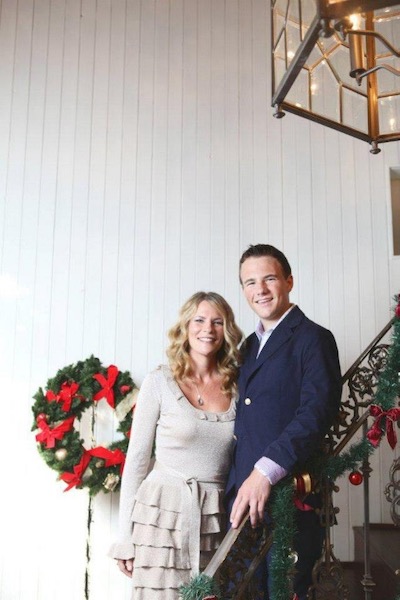
I went on to write a medical journal article that helped start a global camel milk industry for people with autism, diabetes, food allergies, digestive problems, and other conditions. I have a new book out called Camel Crazy: A Quest for Miracles in the Mysterious World of Camels, on the healing power of camel milk. I lecture internationally at conferences and universities, where they know I’m a mother yet never call me mom. And I’ve heard that our former doctor now recommends camel milk to his patients--but not from him.
But I can't escape all the mom-callers. I recently halted my first phone call with my son’s employment agency and asked the young woman I’d never met to use my name. Like a parrot that couldn’t stop repeating itself, she kept going. “Well, Mom, we want the best for him…Mom, this is our process, these things take months.”
Afraid she wouldn't help him if I pushed back, I grimly kept quiet, listening to her reduce me in real-time.
My friend Cara, a conservative Christian, loves it when they call her Mom. “It makes me feel like, yes, that’s who I am, and that they really care about the kids. I don't have a lot of accomplishments (yes, she does), so maybe it doesn’t bother me like you,” she says. But then she adds, “Maybe you're right because I’ve put everything into being a mom—it’s my identity—and now I can't even find a job.”
You Might Also Like: Things Well-Meaning Adults Say To My Autistic Child
I do love to hear Mom coming from my son. At 21, he’s a very intellectual, articulate community college student, hilarious and kind, thanks to his hard work and a decade of biomedical and behavioral interventions. People who meet him can’t tell that he has autism. I’m proud to be his mom. But here are some problems with child professionals using the term for women:
First, it reduces us to a biological role. Women have historically been barred from decision-making spaces and fired when pregnant. Replacing our names with our reproductive status is another way of smothering our identities.
Second, when we’re labeled as Mom, we’re seen as ‘too close’ to the subject—our child—so our opinions are suspect. How can harried, emotional carpooling mommies be analytical?
Third, when moms are told to leave complex matters to experts, they can be taken advantage of. Moms can be manipulated with sappy language about their child. But there is no sentence that requires the word ‘mom’ to transmit its meaning.
Fourth, names establish our personhood and may signify our origin. Shouldn't we be honored with the names our parents chose as we raise the next generation?
Fifth, it’s a rude shortcut. Child professionals might say, “I can’t remember all the parents’ names,” but it’s usually on a form or screen in front of them. It’s also biased, as fathers are much less often called Dad.
I’ve come to see that, innocently or not, the parenting structure calls us Mom to contain us.
Mothers not kept in their places can change society in uncomfortable ways. Keeping us tamed with the soothing mom-label negates our intellect, instincts, and sense of injustice. These traits challenge the systems run by the mom-callers.
In Camel Crazy, I ask a Somali camel herder if her name has a special meaning. She replies, “Everyone’s name is special to them.” It’s time for our providers to learn that lesson. I have a name. They can use it or stop talking because I won’t be listening anymore.
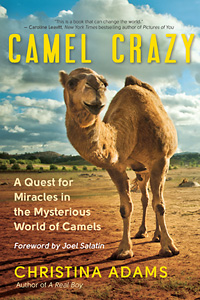
About the book:
In this page-turning odyssey, a mother on a mission travels the globe — from Bedouin camps in the Middle East to Amish farms in Pennsylvania to camel-herder villages in India — to obtain camel milk, which dramatically helps her son’s autism symptoms. Chronicling bureaucratic roadblocks, adventure-filled detours, and Christina Adams’s love-fueled determination, Camel Crazy explores why camels are cherished as family members and hailed as healers. Adams’s work uncovers studies of camel milk for possible treatment of autism, allergies, diabetes, and immune dysfunction, as well as ancient traditions of healing. But the most fascinating aspect of Adams’s discoveries is the gentle-eyed, mischievous camels themselves. Huge and often unpredictable, they are amazingly intelligent and adaptable. This moving and rollicking ode to “camel people” and the creatures they adore reveals the ways camels touch lives around the world. Camel Crazy includes the first-ever users’ and buyers’ guides to camel’s milk.
*Photo of Christina Adams and her son Jonah at home by Mimi Nguyen.
Related:
-
What Mom Shaming Taught Me About Trusting Women
-
Frequently Asked Questions About My Neurodivergent Kid That Shouldn't Be Asked So Frequently
-
The First Time My Son Broke My Heart





